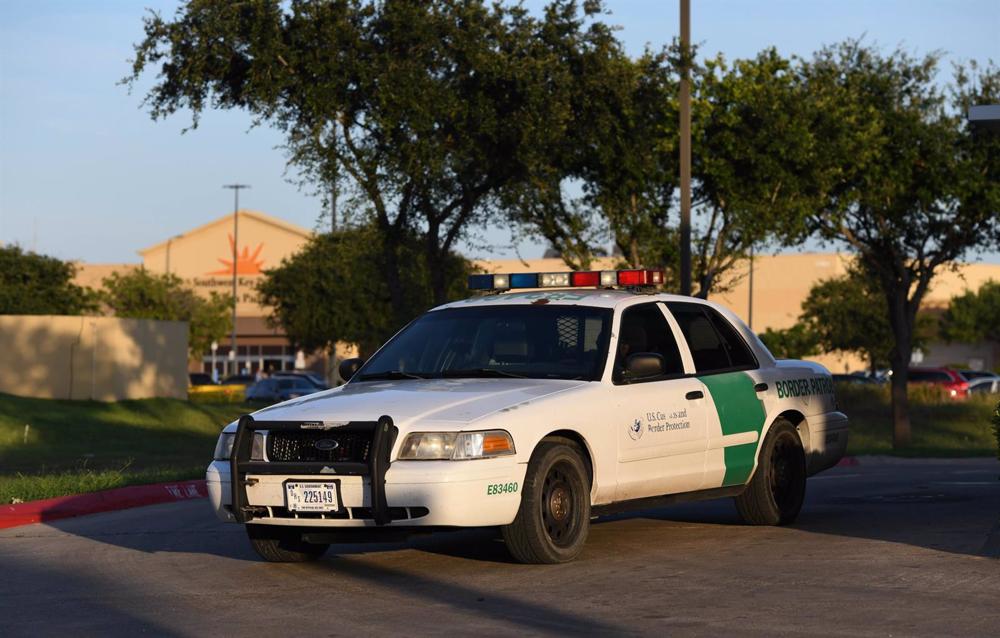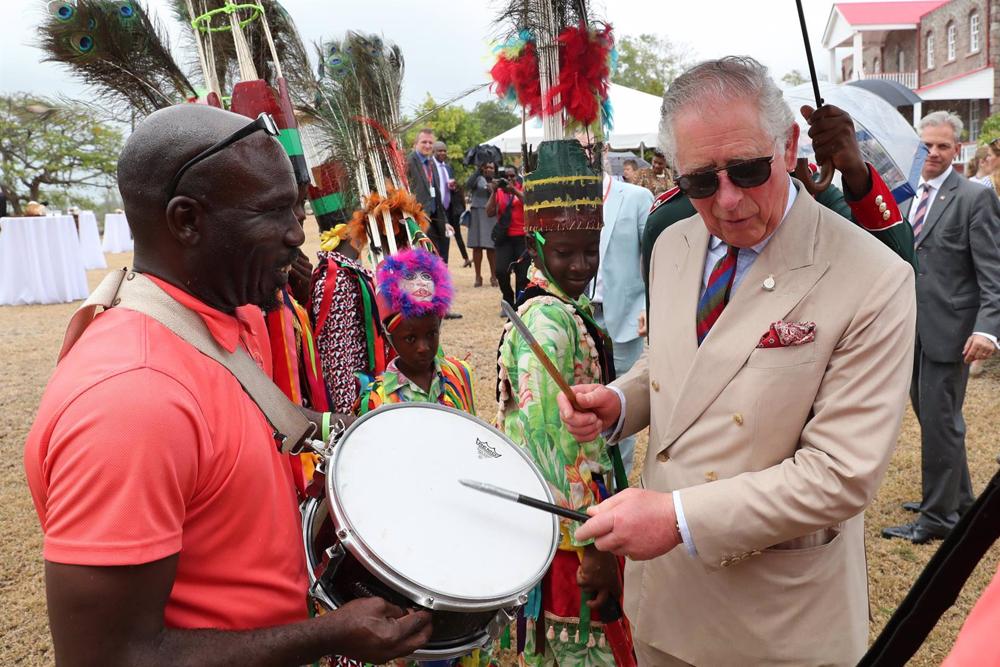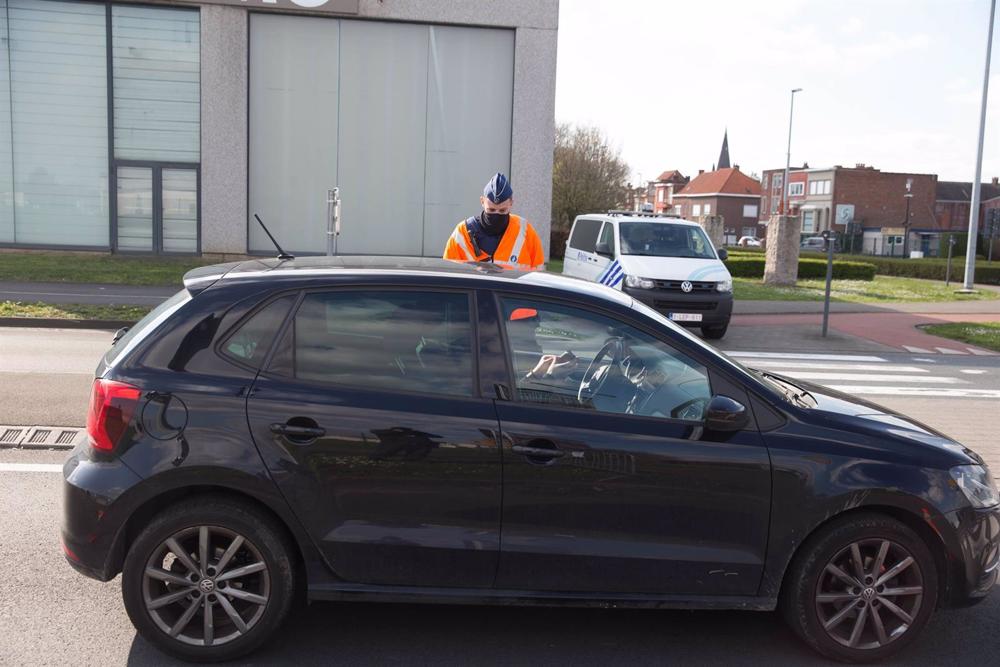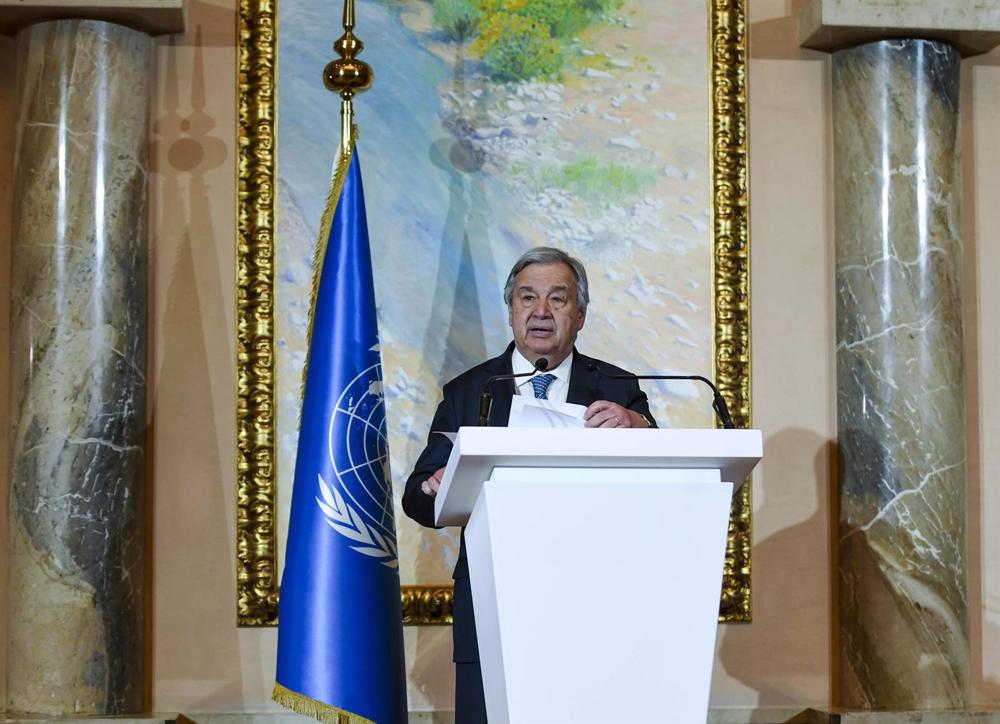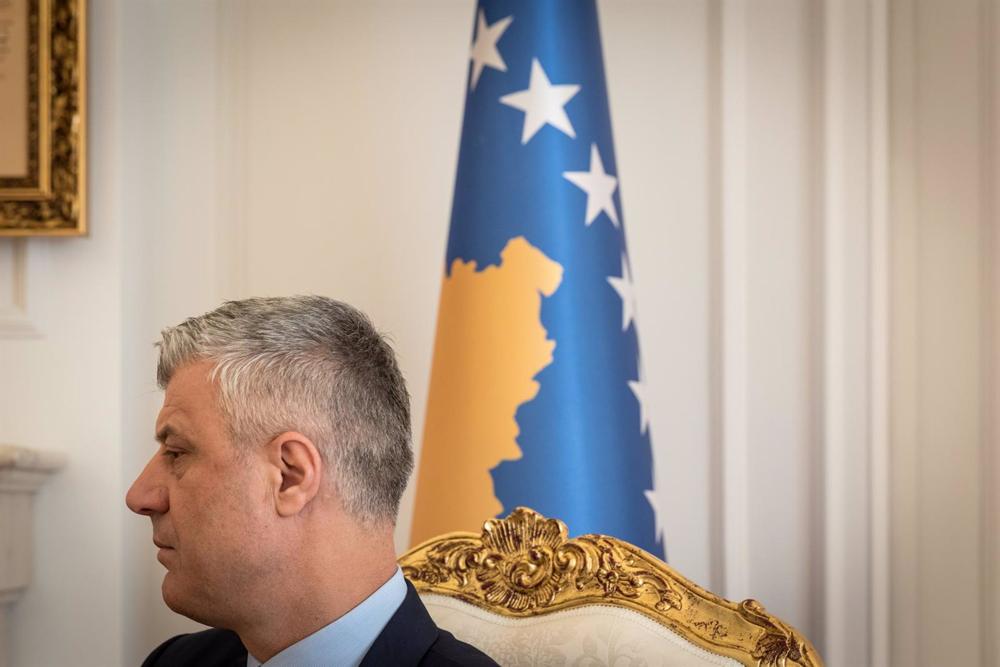
Former President Hashim Thaci appears Monday before the Special Court for Kosovo in The Hague at the beginning of his trial for war crimes and crimes against humanity by participating, according to the indictment, in a campaign of persecution, murder, torture and enforced disappearances of both Kosovo Serbs and other communities and the opposition to the Kosovo Albanian militia of the Kosovo Liberation Army (UCK), where he served as political leader during the open conflict between 1998 and 1999.
Together with Thaci, political leader of the KLA, three other former leaders of this guerrilla group are charged: the former leader of the Democratic Party of Kosovo Kadri Veseli, the head of the parliamentary group of the Kosovar opposition party Vetevendosje, Rexhep Selimi, and the president of the national council of the Social Democratic Initiative party, Jakup Krasniqi.
Specifically, the court charges Thaci — who resigned from office in 2020 after learning of the indictment — and the three former KLA officials with participating in a »joint criminal enterprise» that, from March 1998 to September 1999, focused on »gaining and exercising control over all of Kosovo through measures including »illegal intimidatory abuse,» violence and »elimination» of those who »appeared to be opponents.»
According to the brief, the UCK included in this group of »opponents» persons who »collaborated or were related» to the forces or authorities of Serbia or those »who did not support the objectives or goals» of the guerrilla group and, subsequently, of the »Provisional Government of Kosovo», including persons »related» to the Democratic League of Kosovo (LDK) party, the Serb community, the Roma and other ethnic groups. All the defendants have declared their innocence.
The trial is a reunion of Kosovo with its past. War veterans and nationalist groups have announced protests throughout the trial amid pleas from survivors that the trial may shed light on the fate of the more than 1,600 people who disappeared after the war, according to the United Nations and the International Committee of the Red Cross (ICRC).
For the head of communications for Europe of the NGO Human Rights Watch (HRW), Jan Kooy, the opening of the trial in The Hague against Thaci and his comrades »highlights the flagrant lack of justice that has characterized the conflict in Kosovo and, in fact, all the wars of the former Yugoslavia».
HRW also expresses its hope that this case will serve as the impetus for a broader accountability process. In Serbia, a war crimes tribunal has tried 60 people for crimes in Kosovo and convicted 23 of them but, as HRW recalls, »the Serbian government has shown no political will to prosecute anyone above low-level forces,» and some of these cases have dragged on for years.
»Thaci’s trial can help put Kosovo on a clearer path toward justice and the rule of law after a history of oppression,» said HRW’s Europe and Central Asia director Hugh Williamson. »And it puts the spotlight squarely on the Serbian government to hold its own forces accountable after years of protecting those responsible for serious crimes,» he remarked.
Source: (EUROPA PRESS)
